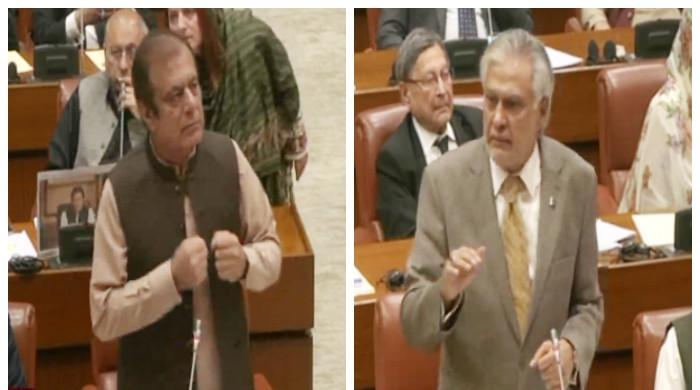Senate Passes Resolution Rejecting Indian Allegations
ISLAMABAD: Pakistan’s Senate has unanimously adopted a resolution dismissing India’s accusations linking Pakistan to the recent attack in Pahalgam, which occurred in Indian Illegally Occupied Jammu and Kashmir (IIOJK). The Senate deemed these allegations unfounded and politically motivated.
The resolution, tabled during the Senate session, strongly condemned all manifestations of terrorism. It underscored that targeting non-combatants contradicts Pakistan’s fundamental principles.
Furthermore, the resolution denounced India’s purported propaganda efforts and its unilateral decision to suspend the Indus Waters Treaty, characterizing it as a breach of international agreements that could be construed as an act of aggression.
The resolution asserted Pakistan’s readiness and capability to safeguard its sovereignty and territorial integrity against any form of incursion.
It reiterated Pakistan’s steadfast backing of the Kashmiri people’s right to self-determination. The resolution further demanded that India be held responsible for its alleged involvement in terrorism and targeted killings abroad, including incidents on Pakistani soil.
This resolution follows what Pakistan views as unilateral and unsubstantiated actions taken by India in the aftermath of the incident in the occupied valley.
These actions reportedly included the suspension of a water-sharing agreement, the announced closure of the primary land border crossing with Pakistan, a reduction in diplomatic engagement, and the revocation of visas for Pakistani citizens.
Pakistan has purportedly responded by ordering the expulsion of Indian diplomats and military attaches, canceling visas for Indian nationals, with the exception of Sikh pilgrims, and closing the main border crossing from its side.
The United Nations has appealed to both Pakistan and India to exercise utmost restraint, advocating for the peaceful resolution of any disputes through meaningful dialogue and mutual cooperation.
Deputy Prime Minister and Foreign Minister Ishaq Dar informed the Senate that while India avoided explicitly naming Pakistan, it alluded to Pakistani involvement without presenting any concrete evidence. He asserted that India’s unsubstantiated narrative was politically anticipated.
Dar briefed the House on the decisions made during the National Security Committee meeting, announcing that all Indian nationals present in Pakistan on SAARC visas must depart within 48 hours. He emphasized that Pakistan is politically united in its response.
He disclosed that briefings were conducted with representatives from 26 countries and that further briefings would take place. He also mentioned that the Foreign Minister of Saudi Arabia had requested a conversation.
Dar reaffirmed that Pakistan’s armed forces are in a state of full readiness and cautioned that any hostile action would be met with a determined response, reminiscent of previous retaliatory measures. He clarified that the Indus Waters Treaty cannot be unilaterally suspended, as consensus is mandated by the agreement.
He stated that water is essential for the well-being of 240 million Pakistanis, and the National Security Committee has declared the threat of water denial as equivalent to an act of war.
Leader of the Opposition in the Senate, Shibli Faraz, stated that the resolution conveys a strong and unified message to adversaries. He criticized India’s persistent attempts to undermine Pakistan and emphasized that these efforts have been unsuccessful. He urged that India be held accountable on the international stage for its alleged promotion of terrorism, including within Pakistan.
Faraz questioned how a significant incident could occur under the watch of a substantial Indian military presence in Kashmir and highlighted India’s history of opposing Pakistan in various international forums.
Pakistan Peoples Party (PPP) Senator Sherry Rehman commented that the water terrorism allegedly being carried out by the Modi government was a long-held ambition.
She asserted that India had effectively rendered the Indus Waters Treaty non-operational the previous year and that Modi had been attempting to cripple the agreement for an extended period.
Rehman cautioned that if India persists on this course, it should bear in mind that its rivers also originate in other countries. She suggested that if Modi intends to revert the region to an era of global conflicts, there would be widespread resistance.
She further noted that Pakistan had sought to engage India in discussions regarding terrorism, but India had not responded. She concluded by stating that if India seeks to test the resolve of the Pakistani people and armed forces, it will find them unwavering.
The PPP senator stated, “We did not militarize this region; you did. Even now, your military formations are arrayed against Pakistan. The majority of your military formations are against Pakistan. You are obsessed with Pakistan. We certainly do not have any obsession with you.”
During the Senate session, Awami National Party (ANP) President Aimal Wali remarked that war benefits no one. He observed that both nations possess the capacity to inflict devastating damage on each other.
He appealed to those in India who seek peace, embrace non-violence, and oppose extremism to voice their opposition to war. He emphasized the need to promote a message of peace for the sake of both countries.
Wali offered his assistance in any dialogue process and expressed his willingness to travel if consent was granted, with the aim of fostering an atmosphere of mutual respect.
He reiterated the desire for amicable relations with India, China, Afghanistan, and Iran. He maintained that even if others attempt to disrupt this environment, Pakistan should refrain from doing so, as it would ultimately be detrimental to the nation.
He stressed that the message of peace must be conveyed with the country’s well-being in mind.
Wali questioned the rationale behind the closure of the Wagah Border while the Kartarpur Corridor remains open. He inquired whether permission had been granted for visits to Ajmer Sharif, and if not, why Kartarpur was being treated differently.
He concluded that if closures are necessary, all routes should be closed uniformly.



Comments (0)
No comments yet. Be the first to comment!
Leave a Comment